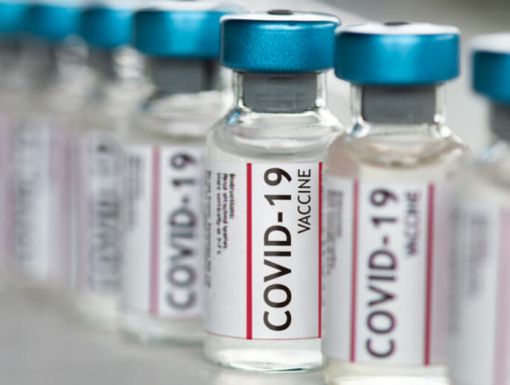
7 Things You Need To Know About Your COVID-19 Vaccine Card
As more people begin to get vaccinated against COVID-19, we are starting to see the light at the end of the pandemic tunnel. Many hope to return to some of the activities we did before the pandemic and are wondering if that reality can happen with their COVID-19 vaccine cards. If you have received the COVID-19 vaccine, you know that you will receive a CDC vaccine card, which includes details of what type of vaccine you got and where you got it. But after you get this card, is there anything special you should do with it? Is it essential to carry it with you? Here are answers to some of your common questions on the COVID-19 vaccine card.
1. What is the point of the vaccine card? The primary function of the vaccine card is to act as a personal immunization record and proof of vaccination. This card may be needed to attend events in the future, but it is important to note that experts say these cards are not legal documents.
2. What is on the vaccine card? You should receive a vaccination card at your first vaccination appointment that tells you what COVID-19 vaccine you received, the date and where you received it. If you get a vaccine that requires a second dose, you will need to bring this vaccination card to your second vaccination appointment to add information to the card.
3. Where should you keep your vaccine card? After getting your vaccine card, you should scan it or take a photo of it for your records as a backup copy. You should keep the original card in a safe place, where you can easily access it. Because it is not currently required to show your vaccine card when going places, it is not recommended you take it everywhere with you.
While lamination is a great way to keep your card safe from damage, some experts advise against it. We don’t know what the future holds, and booster shots may be needed to keep up immunity. The booster shots will most likely be added to your vaccination card, and if it is laminated, that may make it difficult to add any additional information to the card. If you decide to laminate, ensure that you are doing it properly to avoid damaging the card.
4. Should you post your vaccine card on social? As tempting as it is to shout from the rooftops you got the vaccine, you may want to reconsider posting your vaccine card on social media. The vaccine cards contain your personal information, including your name and date of birth. Posting anything online that has your personal information opens you up to identity theft. Instead, consider taking a photo of yourself getting the shot or after your vaccine with a vaccination sticker.
5. What happens if I lose my vaccine card? You want to make sure you keep your vaccine card safe, but we know life happens, and you may lose it. If you have lost your vaccination card or don’t have a copy, contact your vaccination provider directly to access your vaccination record. Many health systems have an Electronic Health Records portal where patients can view their medical history digitally. Ochsner patients can access, view, download and print most of your medical records from your MyOchsner account. In some cases, you may need records sent to other providers or request records not accessible online. If you would like to request a copy of your medical records, please send us a medical records request through your MyOchsner account.
If you cannot reach your vaccination provider directly, contact your state health department’s immunization information system (IIS). You can find state IIS information on the CDC website. Vaccination providers are required to report COVID-19 vaccinations to their IIS and related systems.
6. What is the difference between a vaccine card and a vaccine passport? A vaccine card is a personal immunization record. On the other hand, a vaccine passport is a digital form containing verifiable proof of vaccination that is a little more secure. Vaccine passports will likely be accessed through an app on your phone that uses a bar code or QR code, and when scanned, will show that person’s vaccine status.
Vaccine passports do not come without concerns, including privacy, security and equity issues. While vaccine passports are not a requirement yet, we are sure to hear more in the coming months as countries continue to open to those who are fully vaccinated.
7. Will I need my vaccine card to travel? This question is up in the air. While some states, like New York, have created vaccine passports which residents will use to get into certain events, other states have decided not to go this route. It might be a possibility in the future that those traveling internationally may be required to have a vaccine passport to enter other countries. Currently, if you are traveling, it is wise to bring a copy or picture of your vaccine card in case it is needed.
Learn more about the COVID-19 vaccine: Ochsner.org/vaccine.
The information in this blog post is accurate at the time of publication. However, as the situation surrounding COVID-19 continues to change, it's possible that information has changed since being published. While Ochsner Health is trying to keep our blog posts as up-to-date as possible, we also encourage readers to stay informed on news and recommendations by using the CDC website.

